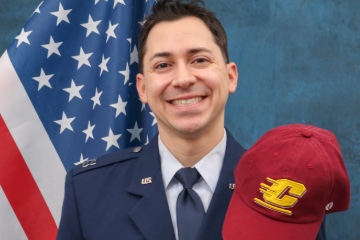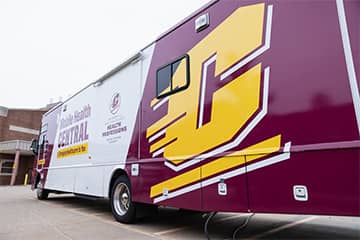New faculty member joins Athletic Training program during its 50th year
New faculty member Chris Hamlyn, Ed.D, brings his interesting experience to CMU.
Chris Hamlyn, Ed.D, joins the Athletic Training program at CMU and brings innovative educational techniques to continue to develop student learning.
Hamlyn received his BS in Athletic Training from Manchester University, his master’s in post-professional Athletic Training program at Indiana University, and his Doctor of Education in higher education from Ball State University. Additionally, Hamlyn worked clinically as an athletic trainer at a high school and Division III university. During his time working clinically at the university level, Hamlyn began working with Athletic Training students and making the transition to the classroom. Most recently, Hamlyn spent nine years at Anderson University in Indiana as a professor and program director.
Currently, Hamlyn serves as the treasurer for the National Athletic Trainers’ Association District Four, which represents about 6,000 athletic trainers. Additionally, Hamlyn is a part of the Great Lakes Athletic Trainers Association Executive Board which provides leadership to over 11,000 athletic trainers.
The history of the Athletic Training program is a contributing factor to Hamlyn’s decision to join CMU faculty, with the program celebrating its 50th anniversary this year. Additionally, Hamlyn is looking forward to the opportunity to work with Rene Shingles, Ph.D., Blaine Long, Ph.D., and others in the College of Health Professions. “Being able to join a team and have that mentorship to help me grow as an educator and professional was a huge draw,” says Hamlyn.
In the classroom, Hamlyn’s passion lies in connecting with students. Hamlyn is looking forward to “learning, growing, and developing the program at the master’s degree level with high impact educational techniques and maximize the learning [students] can have.” In his teaching, Hamlyn uses debriefing techniques to help students by using a single case to identify their clinical thought process and assumptions which helps students develop their ability to think like a healthcare professional in future scenarios.
This story is brought to you by the Office of Research and Graduate Studies.




